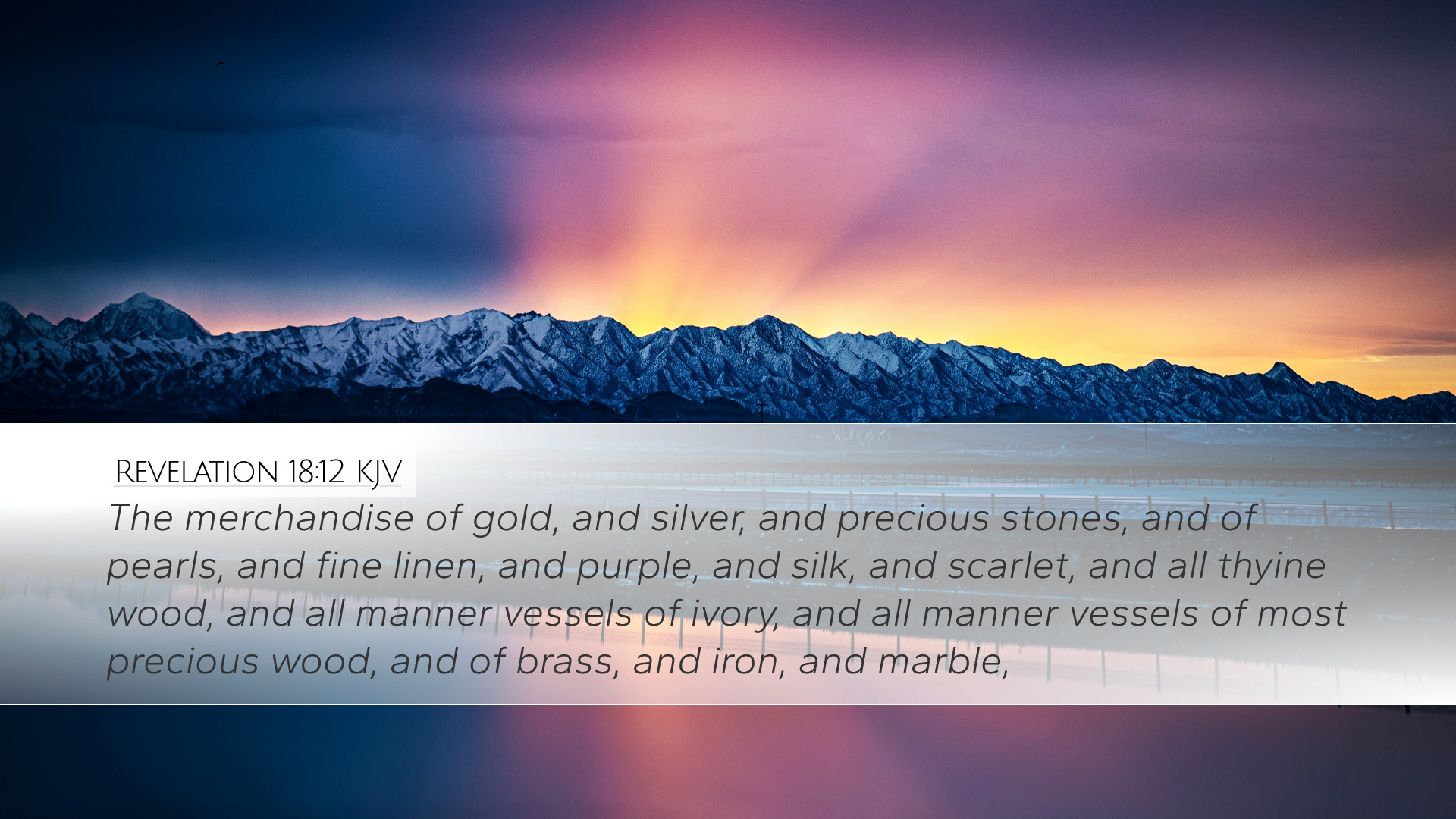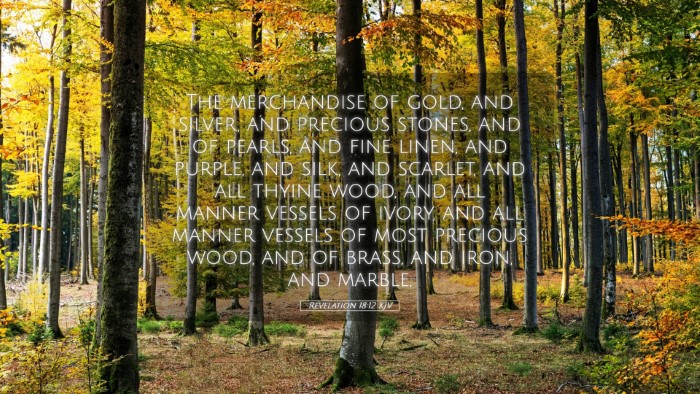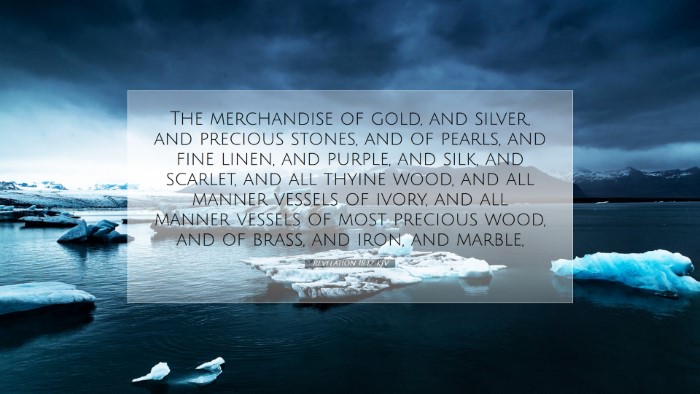Commentary on Revelation 18:12
"The merchandise of gold, and silver, and precious stones, and of pearls..." (Revelation 18:12)
This verse is part of the apocalyptic vision of the fall of Babylon the Great, a symbol of unrighteousness and corruption that represents the opposition to God and His Kingdom. The detail listed in this verse gives a vivid representation of the luxurious and materialistic nature of Babylon. A commentary on this verse draws insights from several public domain sources, notably Matthew Henry, Albert Barnes, and Adam Clarke.
Contextual Overview
Prior to Revelation 18:12, John sees the great city Babylon being judged and destroyed. This chapter outlines the colossal loss that accompanies the fall of this great entity that has deceived nations. Therefore, understanding the list of merchandise is crucial as it provides insight into the greed, immorality, and idolatry associated with Babylon.
Insights from Commentators
Matthew Henry
Henry emphasizes the contrast between the lavishness of Babylon and the poverty of the faithful. He lists the various categories of merchandise to illustrate both economic and spiritual downfall. For Henry, gold and silver represent wealth and materialism, which have been the driving forces of the world’s systems opposed to God. He asserts that these commodities are indicative of a society that has turned away from God, relying on tangible pleasures rather than the eternal treasures of heaven.
Albert Barnes
Barnes provides a detailed exegesis on the nature of the items listed. He notes that:
- Gold and Silver: The core of Babylon's wealth, symbolizing the idolization of material wealth.
- Precious Stones and Pearls: These elements symbolize not only opulence but also the extravagance that often accompanies sinful luxury.
- Fine Linen: Reflects the pride and ostentation that Babylon embodies.
Barnes concludes that these assets are perishable and fleeting, contrasting with the eternal nature of God's riches. He emphasizes that the merchants (representing worldly leaders and influencers) who profited from Babylon will ultimately mourn its demise, highlighting the temporary nature of secular power and wealth.
Adam Clarke
Clarke's commentary delves deeper into each item listed in Revelation 18:12. He notes:
- Merchants: They symbolize those who trade in the spiritual and moral decay promoted by Babylon.
- Spices and Fine Oil: Represent the allure of sensual enjoyment and lavish living—emphasizing that spiritual truths were traded for immediate pleasures.
- Thyine Wood: A luxury item in ancient markets, used to denote the extravagant wastefulness of the elite.
Clarke underscores the grim reality facing those who put their trust in material goods; when Babylon falls, their livelyhood is irrevocably shattered. He warns of the eternal consequences of living in opposition to God’s will, reminding readers that true wealth is found in the spirituality and morality established by divine law.
Theological Implications
The theological reflection stemming from Revelation 18:12 reminds believers of the transient nature of worldly riches. It calls for a rigorous examination of personal values and the priorities evident in lives lived against the backdrop of eternal truth.
Warnings Against Materialism
This passage serves as a sobering reminder of the dangers posed by materialism. It starkly contrasts with the call to store up treasures in heaven (Matthew 6:19-21). It prompts pastors, theologians, and scholars to explore the intersection of wealth, faith, and stewardship, asking the critical question of what constitutes true riches in the sight of God.
Calls to Action for Believers
In consensus with the insights from the commentators, the message is clear: Believers are encouraged to reject the seductive pull of Babylonian values, seeking instead a life marked by holiness, righteousness, and the pursuit of God's eternal promises.
Conclusion
Revelation 18:12 poignantly encapsulates the devastation that comes to those who align with the values of a fallen world. Drawing from the insights of Matthew Henry, Albert Barnes, and Adam Clarke, we see that these verses challenge readers to assess their relationships with material goods and call them to a deeper understanding of what it means to invest in the Kingdom of God. The fall of Babylon is both a condemnation of worldly excess and an invitation to seek the riches found in Christ alone.


